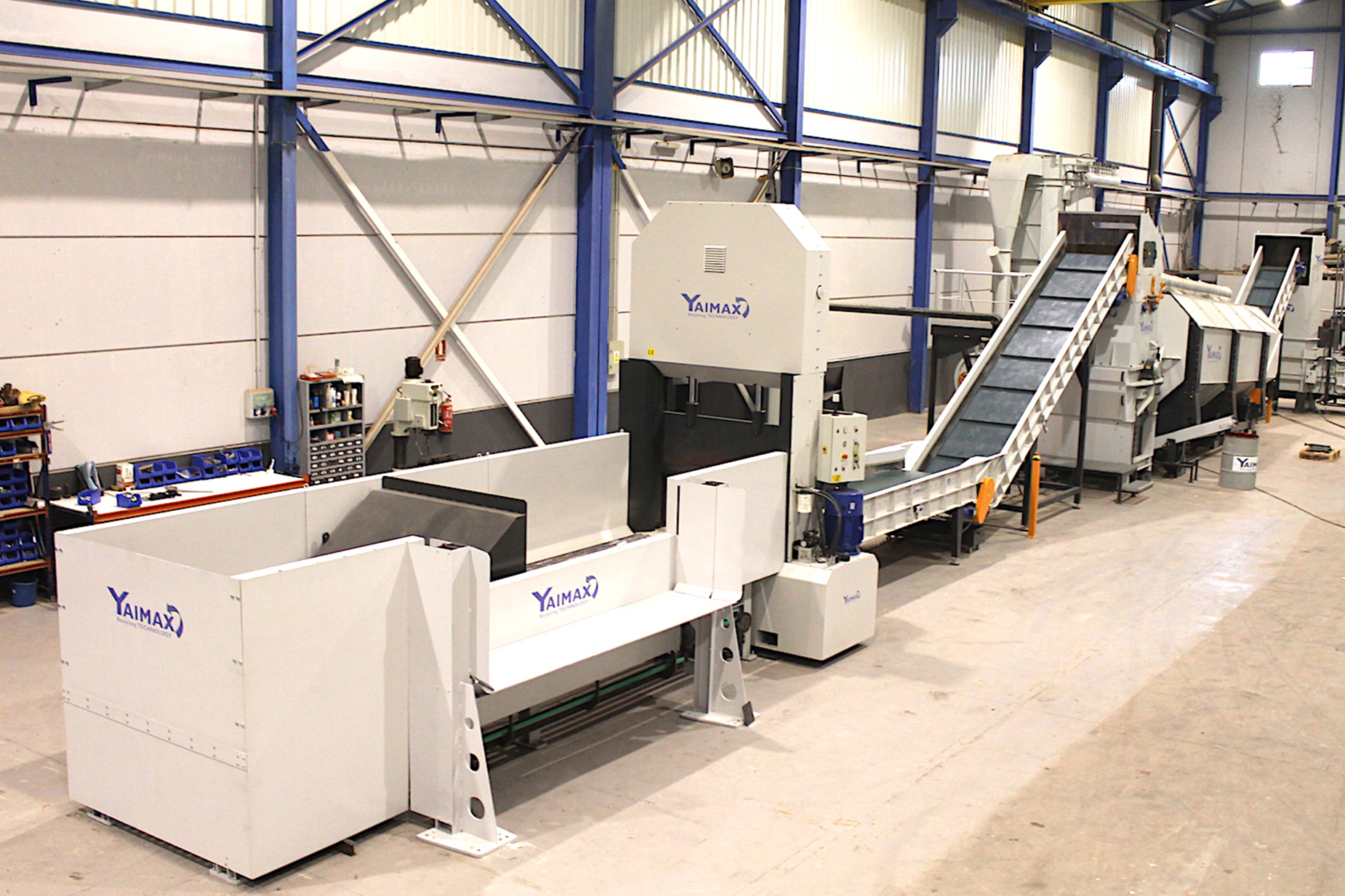The use of plastics in agriculture has grown exponentially in recent decades due to their benefits in improving production and reducing costs. Materials like low and high-density polyethylene (LDPE and HDPE), polypropylene (PP), and polystyrene (PS) are widely used in agricultural applications, from greenhouse films and mulching to pesticide containers and nursery pots. However, the increase in plastic use has led to significant agricultural plastic waste, posing serious environmental challenges.
Traditionally, farmers managed this waste by burying or burning it, practices that have severe environmental consequences, such as contaminating groundwater and emitting toxic gases. In this context, recycling agricultural plastics emerges as a low-impact environmental solution that not only minimizes toxic substance production but also offers technical and economic advantages.
As the agricultural industry seeks to become more sustainable, new technologies and practices are being developed and implemented to improve the efficiency of agricultural plastic recycling. These innovations are designed to address critical issues such as plastic contamination and degradation caused by exposure to the elements. In this article, we will explore the five main trends shaping the future of agricultural plastic recycling.
1. Pre-Washing and Dry Cleaning Plants
Pre-washing and dry cleaning plants are the crucial first step in recycling agricultural plastics. These facilities remove contaminants like soil and agrochemicals, improving the quality of recycled plastic and preparing it for subsequent stages. Dry cleaning is especially relevant as it conserves water resources and reduces effluent generation.
Why is it a Trend?
- Water Conservation: Dry cleaning significantly reduces water consumption, a valuable and increasingly scarce resource, especially in agricultural regions. This technique is essential for promoting more sustainable practices in plastic recycling.
- Reduction of Contaminant Effluents: By minimizing water use, it also reduces the generation of contaminated effluents that require further treatment. This not only lowers operational costs but also reduces the environmental impact of the recycling process.
- Improved Quality of Recycled Material: By effectively removing contaminants, pre-washing plants ensure that recycled plastic is of higher quality and suitable for reuse in various industrial applications. This increases the commercial viability of recycled plastic and its acceptance in the market.
- Compliance with Environmental Regulations: With increasing regulatory pressure to reduce the environmental impact of agricultural and recycling practices, the implementation of dry cleaning technologies helps companies comply with current environmental regulations, avoiding penalties and improving their reputation.
- Innovation and Efficiency: Adopting advanced technologies in pre-washing plants reflects a commitment to innovation and efficiency. These plants use state-of-the-art separation and filtration techniques, making them an essential component of modern plastic waste management strategies.
 Yaimax Integrated Plant for Dry Pre-Washing of Agricultural Plastic.
Yaimax Integrated Plant for Dry Pre-Washing of Agricultural Plastic.
The pre-washing plants for agricultural plastic from Yaimax Recycling Technology offer an innovative solution that uses mechanical means and airflows to clean the material, removing most of the dirt and protecting the rest of the recycling facilities. This not only reduces the wear and consumption of blades and other components but also decreases energy and maintenance costs, prolonging the life of the machines and improving the sustainability of the process.
2. Automation and Digitalization
The integration of automation and digitalization technologies in agricultural plastic recycling is significantly transforming the industry. These innovations, including artificial intelligence (AI) and blockchain, follow the pre-washing stage and play a crucial role in optimizing recycling processes, increasing efficiency, and ensuring transparency.
Artificial Intelligence (AI) in Classification and Recycling
AI is used to improve plastic waste classification processes. By using advanced algorithms and machine learning, AI systems can accurately and quickly identify and sort different types of plastics, reducing operational costs and improving the quality of recycled material.
Blockchain for Traceability and Transparency
Blockchain ensures traceability and transparency in plastic waste management. This technology allows each stage of the recycling process to be recorded in an immutable ledger, providing complete visibility from collection to reuse and demonstrating a commitment to sustainability and social responsibility.
Automation in Recycling Plants
Automation in recycling plants involves using robots and advanced machinery to process plastic waste with minimal human intervention. This increases processing capacity and reduces labor costs, improving the consistency and quality of the final product.
3. Innovation in Depolymerization
After the trends in cleaning and classifying agricultural plastics, another major innovation is depolymerization. This process breaks down plastics into their original monomers using chemical or enzymatic methods, facilitating their reuse in manufacturing new products.
Depolymerization is a key trend because it significantly improves the quality of recycled material, making it competitive with virgin plastics. Additionally, it reduces the need to extract new raw materials, promoting environmental sustainability. Companies and innovators are developing advanced depolymerization methods that increase the efficiency and economic viability of plastic recycling.
4. Advanced Pyrolysis and Gasification
Advanced pyrolysis and gasification break down plastic waste into valuable products such as fuels, biogas, and bio-oil. These technologies apply to waste that cannot be recycled through depolymerization, providing a sustainable alternative to fossil fuels and reducing greenhouse gas emissions.
These techniques are an important trend because they manage plastic waste unsuitable for other recycling methods, converting it into useful resources. Pyrolysis, through oxygen-free thermal degradation, produces pyrolytic oil that can be refined into fuels, while gasification converts waste into synthesis gas, usable for generating electrical or thermal energy.
These innovations not only enhance recycling sustainability but also create new economic opportunities by generating high-value products from hard-to-process plastic waste.
5. Bioplastic Materials
Comprehensive Solutions for Agricultural Plastic Recycling
Current trends in plastic recycling are driving significant advances in energy efficiency, automation, and production capacity. Yaimax Recycling Technology, a subsidiary of Grupo Castillo, offers innovative and creative solutions for the diverse needs of the agricultural plastic recycling industry.
Thanks to the close collaboration between Yaimax and Cuchillas Castillo, we guarantee a comprehensive and high-quality offering for agricultural plastic recycling, optimizing each stage of the process. From the most advanced machinery to the most precise industrial blades, our solutions are designed to maximize efficiency and sustainability
If you want to learn more about the best options for your recycling needs, we invite you to visit www.yaimax.com and consult with our experts on how we can help improve your recycling processes.

